![Bailey, Derek / Simon H. Fell: At Sound 323 [VINYL 180gm WHITE 2 LPs] (Confront) Bailey, Derek / Simon H. Fell: At Sound 323 [VINYL 180gm WHITE 2 LPs] (Confront)](https://www.teuthida.com/productImages/misc4/34253.jpg)
The full performance of legendary improvising guitarist Derek Bailey's 2001 exhilarating duo with bassist Simon H. Fell at Sound 323, originally released as a mini-CD and voted record of the year in 2002 by The Wire, then released on CD and now as a deluxe 2 LP set on 180gm White Vinyl.
In Stock
Quantity in Basket: None
Log In to use our Wish List
Shipping Weight: 34.00 units
Sample The Album:
Derek Bailey-acoustic guitar
Simon H. Fell-doublebass
Click an artist name above to see in-stock items for that artist.
Label: Confront
Catalog ID: Core03LP
Squidco Product Code: 34253
Format: LP
Condition: New
Released: 2023
Country: UK
Packaging: Double LP in single Sleeve
Recorded by Tim Fletcher at Sound 323, London on August 15th, 2001. Remastered by Rupert Clervaux, September, 2023.
"This is the full recording - freshly remastered - of the 2001 duo gig, an excerpt from which appeared in 2002 on a long-deleted Sound 323 mini-CD which was voted a record of the year by THE WIRE magazine.
Here at last is the full performance in all its exhilarating acoustic power, with a new mix and master; an unplugged (but very intense) set from a hot and summery Wednesday afternoon, recorded in the basement of Sound 323 in London by Tim Fletcher."-Confront
Artist Biographies
• Show Bio for Derek Bailey "Derek Bailey (29 January 1930 - 25 December 2005) was an English avant-garde guitarist and leading figure in the free improvisation movement. Bailey was born in Sheffield, England. A third-generation musician, he began playing the guitar at the age of ten, initially studying music with his teacher and Sheffield City organist C. H. C. Biltcliffe, an experience that he did not enjoy, and guitar with his uncle George Wing and John Duarte. As an adult he worked as a guitarist and session musician in clubs, radio, dance hall bands, and so on, playing with many performers including Morecambe and Wise, Gracie Fields, Bob Monkhouse and Kathy Kirby, and on television programs such as Opportunity Knocks. Bailey's earliest foray into 'what could be called free improvised music' was in 1953 with two other guitarists in their shared flat in Glasgow. He was also part of a Sheffield-based trio founded in 1963 with Tony Oxley and Gavin Bryars called "Joseph Holbrooke" (named after the composer, whose work they never actually played). Although originally performing relatively "conventional" modal, harmonic jazz this group became increasingly free in direction. Bailey moved to London in 1966, frequenting the Little Theatre Club run by drummer John Stevens. Here he met many other like-minded musicians, such as saxophonist Evan Parker, trumpet player Kenny Wheeler and double bass player Dave Holland. These players often collaborated under the umbrella name of the Spontaneous Music Ensemble, recording the seminal album Karyobin for Island Records in 1968. In this year Bailey also formed the Music Improvisation Company with Parker, percussionist Jamie Muir and Hugh Davies on homemade electronics, a project that continued until 1971. He was also a member of the Jazz Composer's Orchestra and Iskra 1903, a trio with double-bass player Barry Guy and tromboneist Paul Rutherford that was named after a newspaper published by the Russian revolutionary Vladimir Lenin. In 1970, Bailey founded the record label Incus with Tony Oxley, Evan Parker and Michael Walters. It proved influential as the first musician-owned independent label in the UK. Oxley and Walters left early on; Parker and Bailey continued as co-directors until the mid-1980s, when friction between the men led to Parker's departure. Bailey continued the label with his partner Karen Brookman until his death in 2005[citation needed]. Along with a number of other musicians, Bailey was a co-founder of Musics magazine in 1975. This was described as "an impromental experivisation arts magazine" and circulated through a network of like-minded record shops, arguably becoming one of the most significant jazz publications of the second half of the 1970s, and instrumental in the foundation of the London Musicians Collective. 1976 saw Bailey instigate Company, an ever-changing collection of like-minded improvisors, which at various times has included Anthony Braxton, Tristan Honsinger, Misha Mengelberg, Lol Coxhill, Fred Frith, Steve Beresford, Steve Lacy, Johnny Dyani, Leo Smith, Han Bennink, Eugene Chadbourne, Henry Kaiser, John Zorn, Buckethead and many others. Company Week, an annual week-long free improvisational festival organised by Bailey, ran until 1994. In 1980, he wrote the book Improvisation: Its Nature and Practice. This was adapted by UK's Channel 4 into a four-part TV series in the early '90s, edited and narrated by Bailey. Bailey died in London on Christmas Day, 2005. He had been suffering from motor neurone disease." ^ Hide Bio for Derek Bailey • Show Bio for Simon H. Fell Simon H. Fell (b. Dewsbury, Yorkshire, 13 January 1959) is a bassist and composer; he is primarily known for his work as a free improviser and the composer of ambitiously complex post-serialist works. Fell began playing double bass in 1973. From 1978 to 1981 he read English Literature at Fitzwilliam College of Cambridge University,[1] an interest that led to ties to many of the poets associated with the Cambridge scene (a later work, Music for 10(0), involves settings of texts by the poet/music journalist/provocateur Ben Watson). Fell's most notable early group was a group with drummer Paul Hession and saxophonist Alan Wilkinson, a free-jazz trio that was exceedingly fast and furious even by the standards of that genre. Their work was primarily released as cassettes and CDs on Fell's label Bruce's Fingers, including Bogey's and the group's only studio album, foom! foom! Their most sonically extreme statement, however, was the grainily recorded The Horrors of Darmstadt (Shock). (Its title is a sarcastic quotation from a BBC announcer concerning the avant-garde Darmstadt School of composers.) Other groups in which Fell is or was a member include the free jazz trio Badland (led by saxophonist Simon Rose; initially the drummer was Mark Sanders, with Steve Noble subsequently taking over the role), the improvising string+percussion ensemble ZFP (with Carlos Zingaro, Marcio Mattos and Mark Sanders), and SFQ, a quartet/quintet with changing membership, though clarinettist Alex Ward has been a constant. (Fell's 2001 version of his 70-minute SFQ composition Thirteen Rectangles was broadcast twice by the BBC and subsequently nominated for the 'new work' award in the 2002 BBC Jazz Awards.) In sharp contrast to the uproar of Hession/Wilkinson/Fell, the trio IST (with Rhodri Davies and Mark Wastell) was one of the seminal groups in the development of the ultra-quiet aesthetic now generally called "EAI" or "electroacoustic improvisation". Fell has also performed in many other ensembles, including the London Improvisers Orchestra and Derek Bailey's Company Week. Fell's major sequence of compositions is titled Compilation (to date, four such projects have been issued). Despite the governing title, these are not collections of previous material but new, large-scale works. The musical language makes overt use of serialist procedures (such as tone rows, retrograde structures, &c), as well as many other techniques: extensive studio layering, overdubbing and reordering of material (so that seemingly "live" performances may be the result of carefully edited-together improvisations and/or notated material), and use of aleatoric techniques to "degrade" or distort precomposed structures into new shapes. Free improvisation, rock and jazz all form key parts of the musical language; one section of Compilation IV even includes a simultaneous hommage to Karlheinz Stockhausen and Henry Mancini. The cast of musicians drawn on for these pieces usually includes a mix of classically trained players, jazzers and free improvising musicians, as well as wild cards like the noise guitarist Stefan Jaworzyn. While virtuoso players such as Evan Parker and John Butcher are essential to the projects, Fell often deliberately makes use of amateur or student musicians, too, not as a makeshift but as an intentionally democratizing and less predictable element. ^ Hide Bio for Simon H. Fell
4/9/2025
Have a better biography or biography source? Please Contact Us so that we can update this biography.
• his compositions for The London Improvisers' Orchestra (Papers, Happy Families, Kšln Klang, Ellington 100 (Strayhorn 85), Morton's Mobile, Too Busy and Three Mondrians) (1998-2004)
• Kaleidozyklen, a 60-minute piece for improvising double bassist and orchestra (2000)
• Thirteen New Inventions, a major solo piano piece commissioned by Philip Thomas (2005)
• the concert-length BBC Radio 3 commission, Positions & Descriptions (for 18 musicians & prerecorded materials), premiered at the Huddersfield Contemporary Music Festival (2007)
• a 1-hour suite for sextet, The Ragging Of Time, commissioned by the Marsden Jazz Festival (2014)
-Wikipedia (https://en.wikipedia.org/wiki/Simon_Fell)
4/9/2025
Have a better biography or biography source? Please Contact Us so that we can update this biography.
Track Listing:
SIDE A
1. Pre-Tea I 14:09
SIDE B
1. Pre-Tea II 12:32
SIDE C
1. Post-Tea I 16:28
SIDE D
1. Post Tea II 12:57
Vinyl Recordings
Improvised Music
Free Improvisation
Jazz
London & UK Improv & Related Scenes
Guitarists, &c.
Stringed Instruments
Duo Recordings
Jazz Reissues
Staff Picks & Recommended Items
Search for other titles on the label:
Confront.



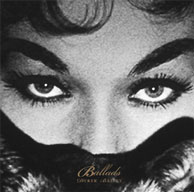
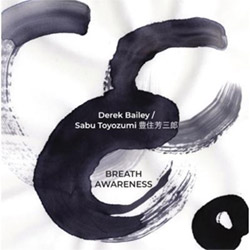
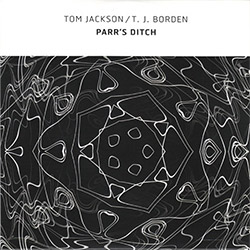

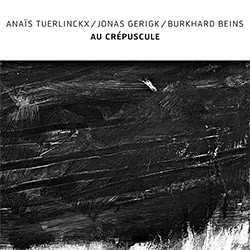
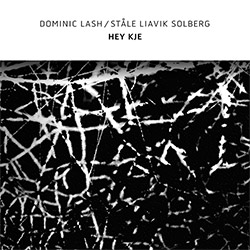
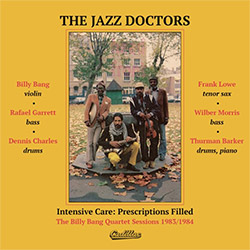
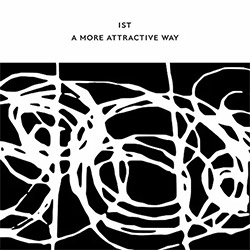

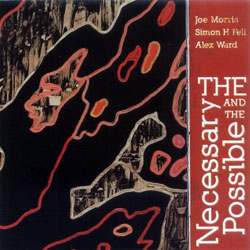
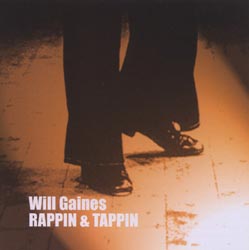

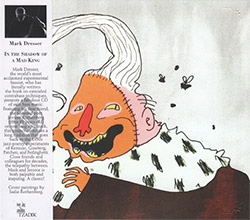

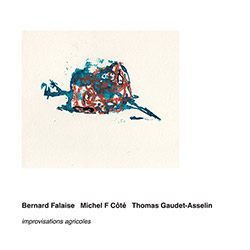

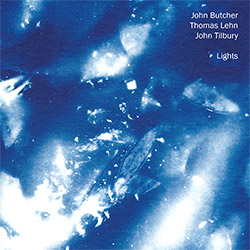
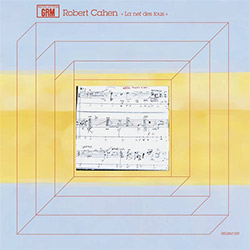
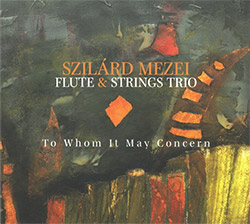
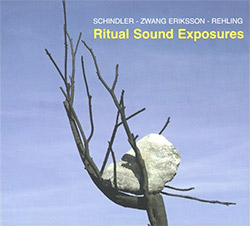
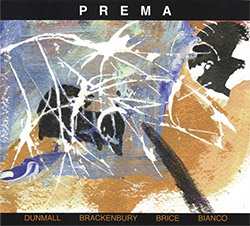



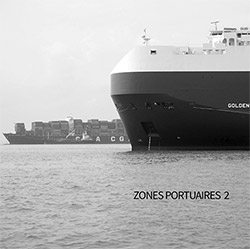
![111 (Michelle / Villamil): Live at Opus 40 [CASSETTE]](https://www.teuthida.com/productImages/misc4/35986.jpg)
![del Pino, Francisco / Charlotte Mundy: The Sea [CASSETTE]](https://www.teuthida.com/productImages/misc4/35987.jpg)

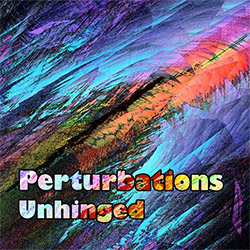

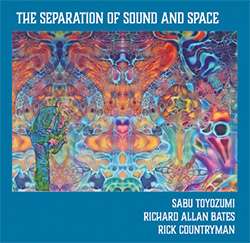
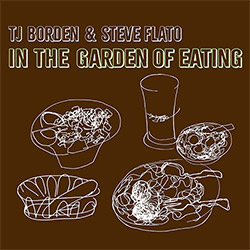

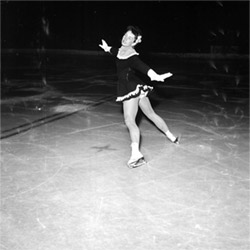
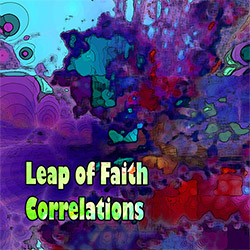

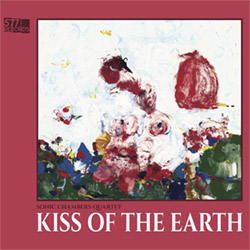

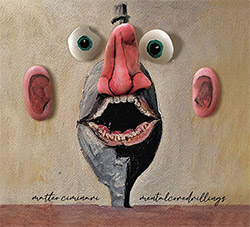
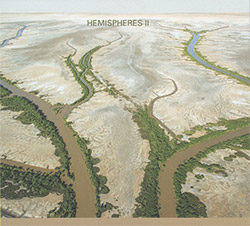
![Niblock, Phill / Anna Clementi / Thomas Stern: Zound Delta 2 [VINYL]](https://www.teuthida.com/productImages/misc4/34623.jpg)
![Yoko, Ono / The Great Learning Orchestra: Selected Recordings From Grapefruit [2 CDs]](https://www.teuthida.com/productImages/misc4/35841.jpg)

![Brotzmann, Peter / John Edwards / Steve Noble / Jason Adasiewicz: The Quartet [2 CDs]](https://www.teuthida.com/productImages/misc4/35975.jpg)
![Brotzmann, Peter / John Edwards / Steve Noble / Jason Adasiewicz: The Quartet [VINYL 2 LPs]](https://www.teuthida.com/productImages/misc4/35976.jpg)
![Thomas, Pat: The Solar Model of Ibn-Al Shatir [VINYL]](https://www.teuthida.com/productImages/misc4/36044.jpg)
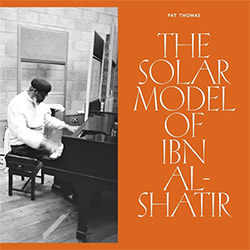



![Rodrigues, Ernesto / Nuno Torres / Guilherme Rodrigues: Whispers In The Moonlight - In Seven Movements [2CDs]](https://www.teuthida.com/productImages/misc4/35765.jpg)



![Cocks, Laura: FATHM [VINYL]](https://www.teuthida.com/productImages/misc4/36055.jpg)













![Schindler, Udo / Sandy Ewen / Damon Smith: Munich Sound Studies Vols. 4, 5 & 6 [3 CDs]](https://www.teuthida.com/productImages/misc4/35966.jpg)
![Turbulence Orchestra & Sub-Units: Smear Out the Difficulties (Double Live) [2 CDs]](https://www.teuthida.com/productImages/misc4/36048.jpg)

![Myers, David Lee : Tin Drop Tear [BOOK w/ DOWNLOAD]](https://www.teuthida.com/productImages/misc4/36030.jpg)

![Ackerley / Prymek / Turner: All Hope With Sleeping Minds [CASSETTE]](https://www.teuthida.com/productImages/misc4/35950.jpg)








![Olencki, Weston : Pearls Ground Down To Powder [VINYL]](https://www.teuthida.com/productImages/misc4/35956.jpg)
![Myers, David Lee: Oculus [2CDs]](https://www.teuthida.com/productImages/misc4/35857.jpg)


![dustsceawung: dustsceawung [CASSETTE w/ Download]](https://www.teuthida.com/productImages/misc4/35753.jpg)




![Halls of the Machine: Atmospheres For Lovers And Sleepers [CASSETTE w/ DOWNLOAD]](https://www.teuthida.com/productImages/misc4/35806.jpg)











![Zorn, John / JACK Quartet: The Complete String Quartets [2 CDs]](https://www.teuthida.com/productImages/misc4/35609.jpg)

![Lonsdale, Eden: Dawnings [2 CDs]](https://www.teuthida.com/productImages/misc4/35480.jpg)







![Sanna, Claudio: Compositori Sardi Contemporanei II [2 CDs]](https://www.teuthida.com/productImages/misc4/35317.jpg)







![Zurria, Manuel: Fame di Vento [3 CDs]](https://www.teuthida.com/productImages/misc4/35167.jpg)

![Electric Bird Noise / Derek Roddy: 8-10-22 [CD EP]](https://www.teuthida.com/productImages/misc4/35970.jpg)








![Elephant9 : Mythical River [VINYL]](https://www.teuthida.com/productImages/misc4/34624.jpg)



![Elephant9 with Terje Rypdal: Catching Fire [VINYL 2 LPs]](https://www.teuthida.com/productImages/misc4/35355.jpg)
![Deerlady (Obomsawin, Mali / Magdalena Abrego): Greatest Hits [VINYL]](https://www.teuthida.com/productImages/misc4/34876.jpg)







![Surplus 1980: Illusion of Consistency [CD]](https://www.teuthida.com/productImages/misc4/35069.jpg)
![Staiano, Moe: Away Towards the Light [VINYL + DOWNLOAD]](https://www.teuthida.com/productImages/misc4/35037.jpg)



![Caveira (Gomes / Sousa / Abras / Ferrandini): Ficar Vivo [VINYL]](https://www.teuthida.com/productImages/misc4/34643.jpg)
![Coley, Byron: Dating Tips for Touring Bands [VINYL]](https://www.teuthida.com/productImages/misc4/17906.jpg)

![Lost Kisses: My Life is Sad & Funny [DVD]](https://www.teuthida.com/productImages/misc4/lostKissesDVD.jpg)